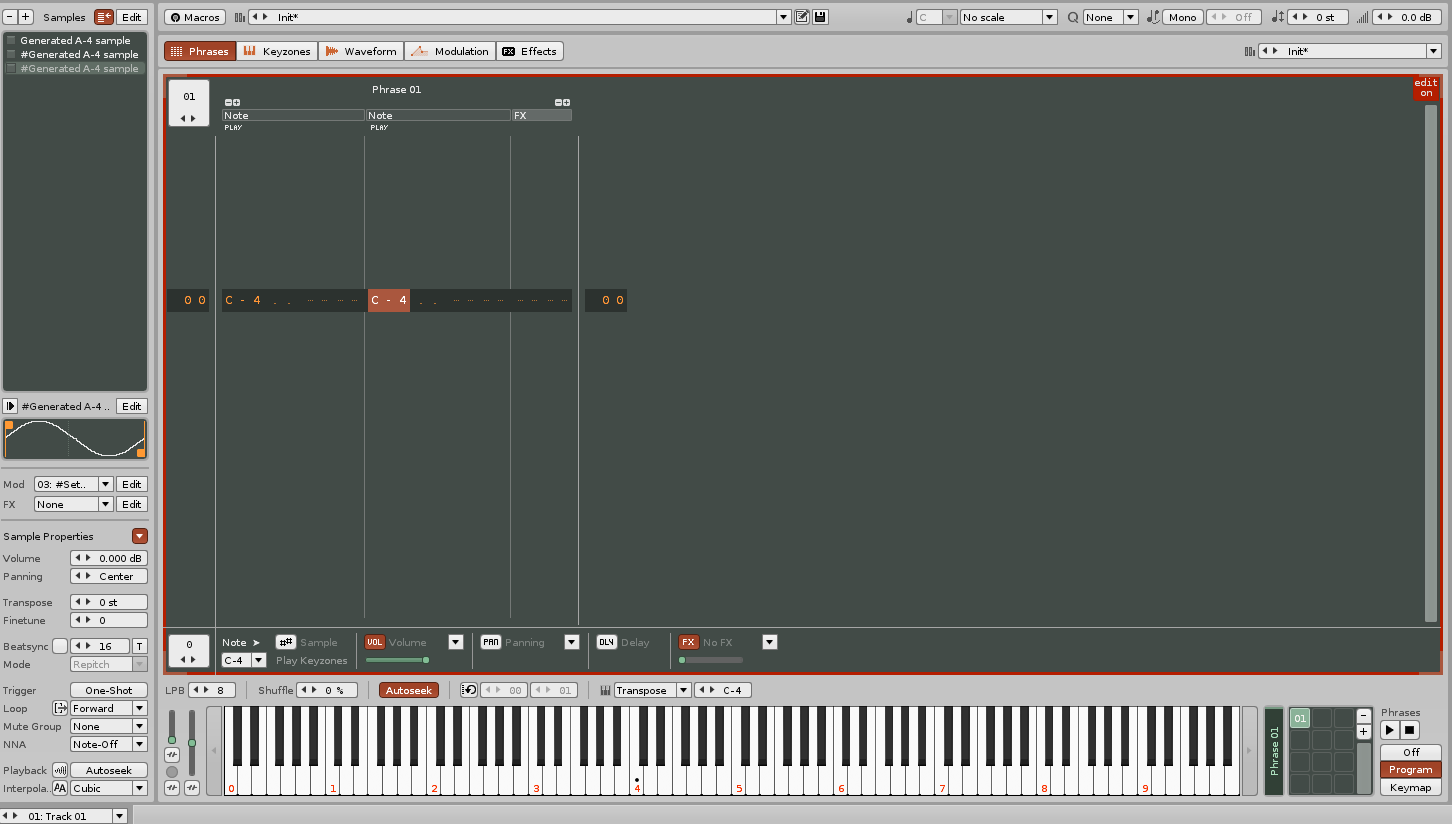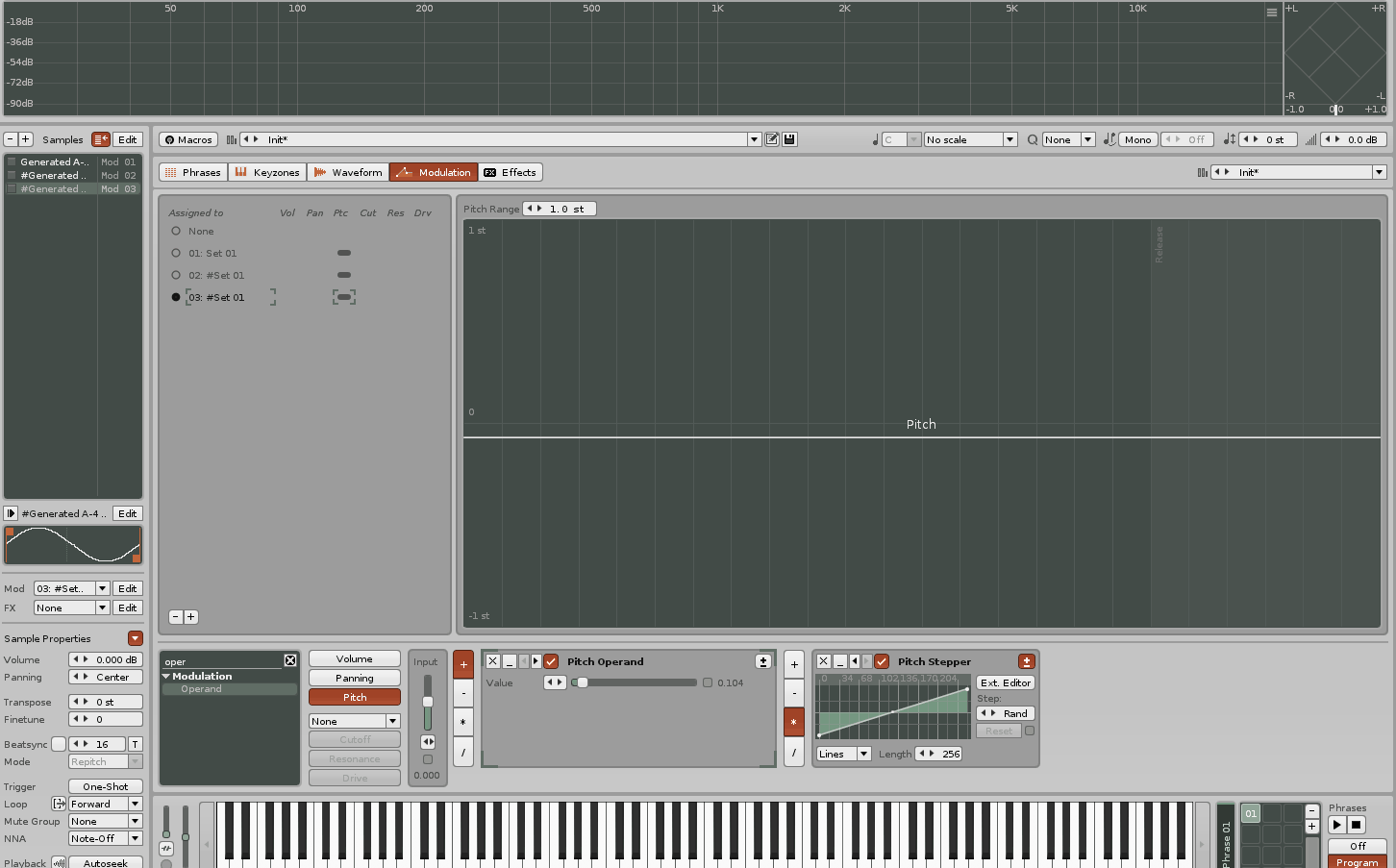This topic builds off of concepts I presented in another thread that will be used to demonstrate a unique way of instrument/audio designing. A interesting concept that I’ve been toying around is how to randomize sample pitches. It’s fairly simple:
- Underneath pitch in the modulation chain, define 2 modulations: stepper and operand
- Stepper: configure it as shown below
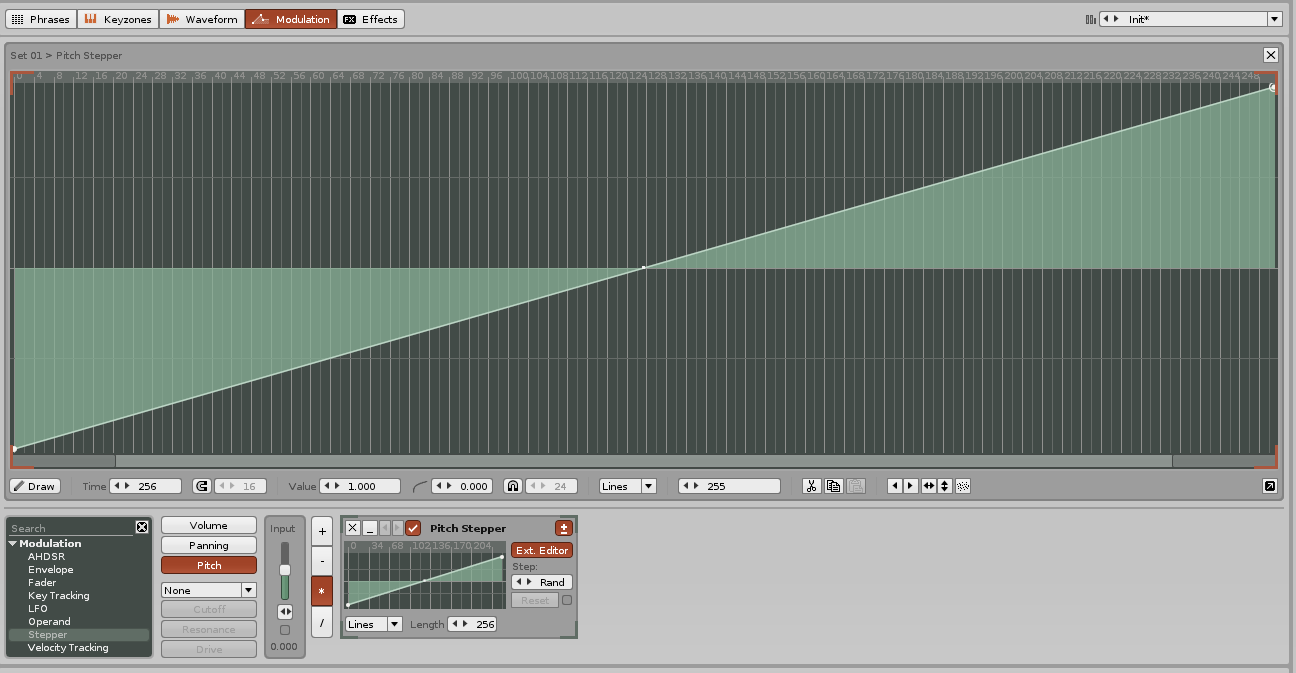
- Operand: configure it as shown below
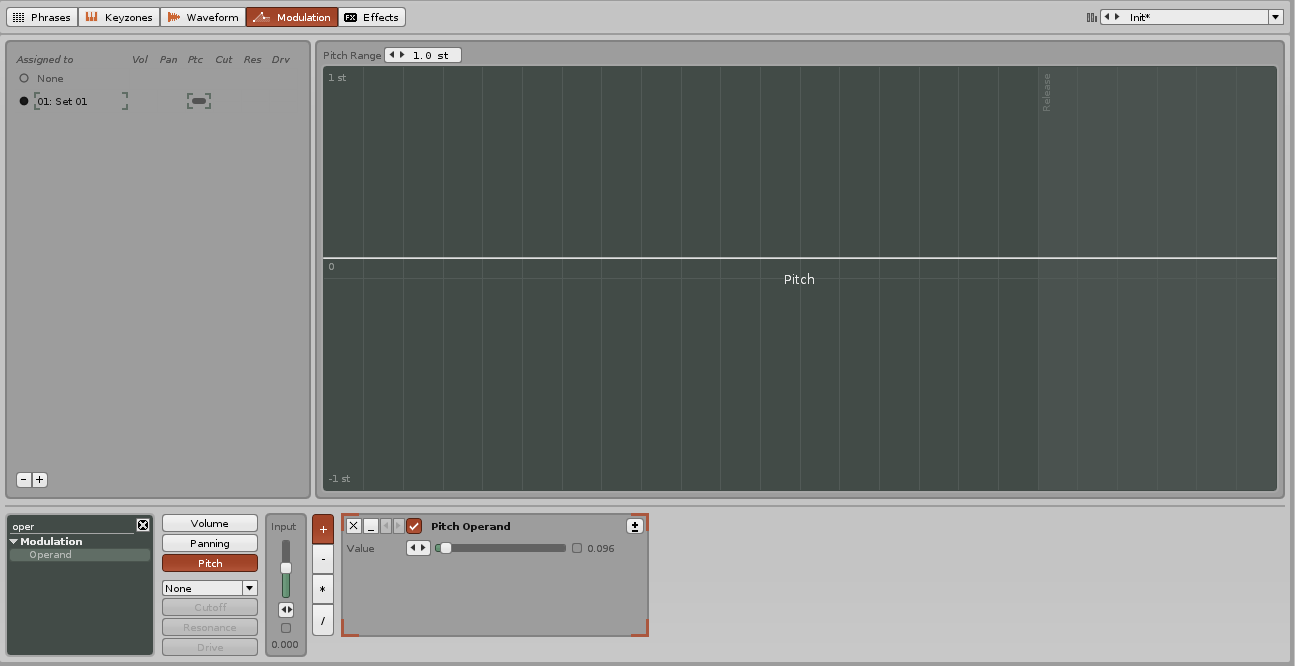
Now you have an instrument that randomly plays different pitches when hitting note.
This effect is great but comes with a downside: one modulation for a set of samples, not good for . Let say if 2 samples are assigned to that specific modulation chain we created, both of them are assigned the same pitch offset for every key press.
Instead of seeing a modulation chain as multiple outputs, think of it as a single channel/output. Treat each sample as an operator. If you put in that perspective, separate each sample to their own modulation chain as below. You can duplicate and modify the operand to suite your degree of detuning.
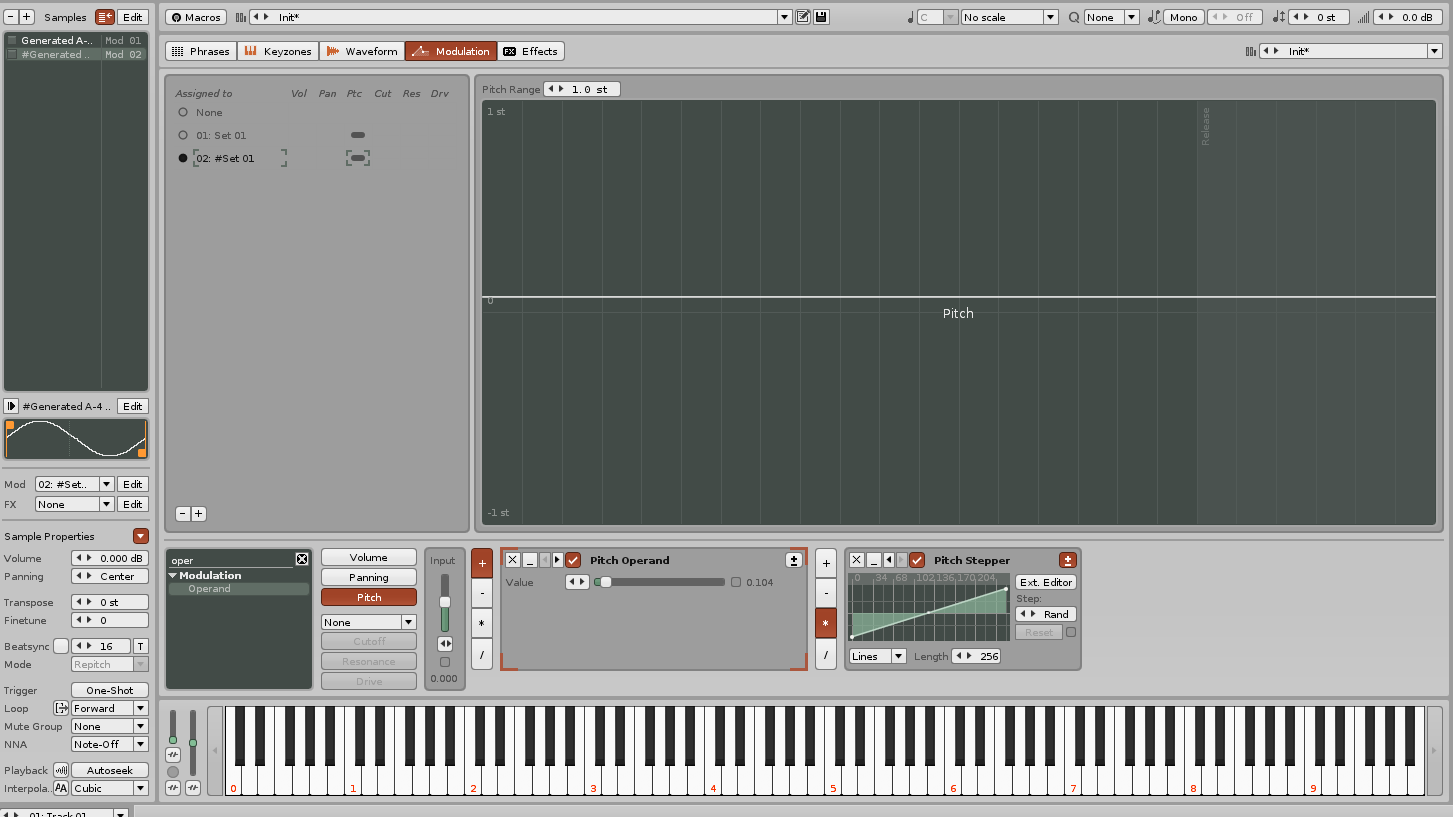
Let’s take this step one step further. What if you have 3 samples and only want to execute 2 per key press? The catch is the samples are executed at random at will. Right you can do that…
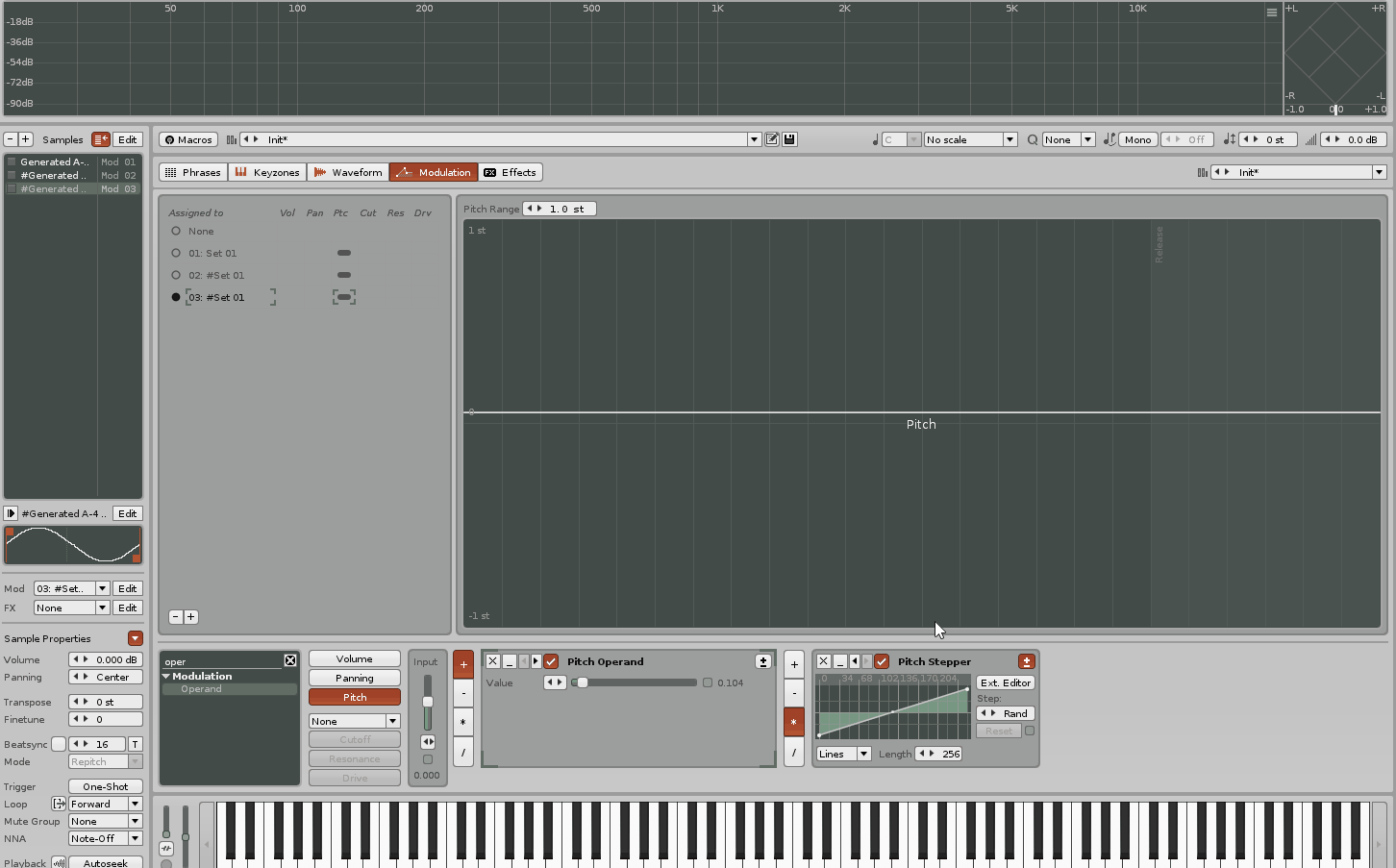
…but you can only trigger one key press at a time. That is unless you create a phrase that states 2 samples (no defined samples)…thus…
